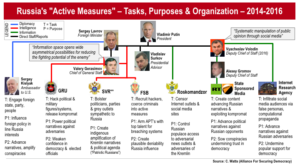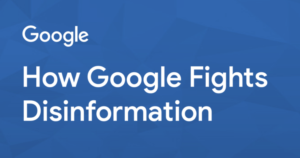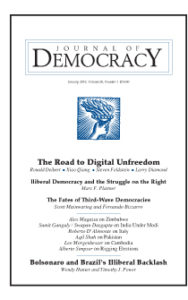
Coda Story
A hacking group has targeted European democratic institutions including think tanks and non-profit groups ahead of highly anticipated EU parliamentary elections in May, Microsoft said. The company said Tuesday that a group called Strontium targeted email accounts for more than 100 people in six European countries working for the German Council on Foreign Relations, the Aspen Institutes in Europe and the German Marshall Fund, AP reports:
Microsoft said in a blog post that it is continuing to investigate but is confident many of the attacks originated from Strontium, a group that others call Fancy Bear or APT28. U.S. authorities have tied the group to Russia’s main intelligence agency, known as the GRU….In a statement , the German Marshall Fund president, Karen Donfried, said the attacks were unsurprising for an organization “dedicated to advancing and promoting democratic values.”
 The attacks on the three high-profile think tanks took place between September and December 2018, according to Microsoft. The company didn’t say whether the attackers were successful but said that it quickly notified the organizations that they were being targeted and helped them secure their systems, CNN adds.
The attacks on the three high-profile think tanks took place between September and December 2018, according to Microsoft. The company didn’t say whether the attackers were successful but said that it quickly notified the organizations that they were being targeted and helped them secure their systems, CNN adds.

Clint Watts/Alliance for Securing Democracy
DomainTools, the leader in domain name and DNS-based cyber threat intelligence, today announced the results of its quarterly “State of the Domain” research, according to reports:
The study analyzed some of the top media outlets in the U.S. to determine their susceptibility to domain-squatting and spoofed domains, which may be used for the dissemination of disinformation campaigns or other malicious activities. Based on analysis of news sources including The New York Times, USA Today, CSO, The Washington Post, Krebs on Security, and more, DomainTools discovered nearly 200 fraudulent domains that were nearly identical to the publications’ legitimate domain names.
“As distrust of traditional media continues to grow, and individuals continue to consume social networks as trusted news sources, protecting the public from disinformation campaigns has become pertinent to the democratic process,” said Corin Imai, senior security advisor at DomainTools.
 Google’s approach to tackling disinformation is based around a framework of three
Google’s approach to tackling disinformation is based around a framework of three
strategies, the company states in a new report:
- Make quality count in ranking systems;
- Counteract malicious actors;
- Give users more context.
These strategies are also used to address misinformation more broadly, which pertains to the
overall trustworthiness of the information provided to users in its products, the firm adds in How Google Fights Disinformation.
Russia is seeking to undermine the legitimacy of the democratic system, according to the final report of a UK parliamentary committee investigating disinformation. The report cites a criminal complaint filed by the FBI last September against a Russian national accused of participating in Project Lakhta, a campaign to propagate distrust of political candidates in elections as well as Western democracy more generally.
 Authoritarians have learned to co-opt fears about disinformation and cyberattacks, CodaStory reports:
Authoritarians have learned to co-opt fears about disinformation and cyberattacks, CodaStory reports:
In the past few years, Kazakhstan has created and enforced laws that criminalize certain forms of online speech. In Russia, authorities have cracked down on comically innocuous Facebook posts, sending chilling effects throughout society. For some governments, a simple copyright claim has served as an effective censorship tool. ….. Egypt and Singapore have enacted or proposed “fake news” legislation that has critics crying censorship, while Vietnam cites cybersecurity as it forces companies to store data locally, potentially imperiling user privacy.
How are new digital technologies transforming the arsenal of authoritarianism—and reshaping democratic politics? The Journal of Democracy’s January 2019 issue features a set of four articles examining the growing threat of digital repression.







